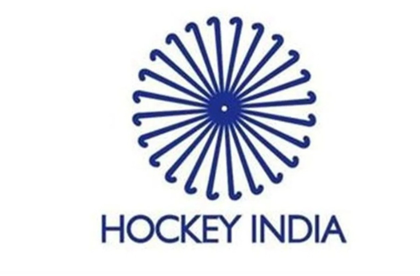Hockey India remembers the first Adivasi icon of Indian Hockey - Jaipal Singh Munda
By IANS | Updated: October 9, 2025 15:55 IST2025-10-09T14:30:06+5:302025-10-09T15:55:28+5:30
New Delhi, Oct 9 The enigmatic Jaipal Singh Munda, born as Pramod Pahan, in a Munda (tribal) family ...

Hockey India remembers the first Adivasi icon of Indian Hockey - Jaipal Singh Munda
New Delhi, Oct 9 The enigmatic Jaipal Singh Munda, born as Pramod Pahan, in a Munda (tribal) family in Pahan Toli Village, Kunti sub-division of Ranchi district in the then Bengal Presidency, was the first true hero of Indian hockey, for his team went on to win the first Olympic gold medal in 1928. The Marang Gomke Hockey Stadium in Ranchi, Jharkhand, is a befitting tribute to this iconic leader.
He was in England as a student at Oxford University when he was picked to join the squad that would sail out of India. He left the Indian team after playing a few matches and never represented the country that.
Jaipal Singh Munda’s early life was a struggle. He would herd cows until a missionary helped him secure admission in St Paul’s School in Ranchi. It was here that Jaipal Singh Munda’s life took a dramatic turn. He not only became exceptional in academics, but also excelled in sports, particularly in hockey. Like most players from Odisha and Jharkhand today, who are outstanding as defenders, Jaipal was a full-back who often left his teachers awe-struck with his skills in the backline.
His on-field exploits, his immense knowledge of the sport and its playing conditions made him a natural pick to captain the Indian team at the Olympic Games in Amsterdam. In the years leading up to the Olympic Games victory, he was instrumental in organising tours across India for college and university hockey teams, which further established the Indian Hockey Federation (IHF), which was formed in 1925.
At the Olympics, India made a grand start, registering sweeping wins in their first three matches and eventually beating the hosts Netherlands, 3-0 in the final to bag their maiden Olympic title.
Munda went on to become a revolutionary figure in India’s history, and in his formative years post-Independence, he was a fierce voice for the tribals and their rights.
Jaipal Singh played a key role in helping the Indian team prepare for the Amsterdam Olympics in 1928 when the team toured England for matches.
In his autobiography 'Goal', Hockey wizard Dhyan Chand mentioned how Jaipal Singh helped the team get acclimatised to the conditions in England and about their opponent teams.
"Jaipal Singh's intimate knowledge of English players and ground conditions was of great help to us. We found him to be an exceedingly popular man in England's hockey world. A most affable man, he was a great hit in social circles too, as I found out in the few social gatherings I attended. We considered ourselves most fortunate in having such a man as our skipper," Dhyan Chand wrote.
Dhyan Chand also mentioned how Jaipal Singh left the team and Amsterdam after playing three matches because of differences with the British officers, who were part of the Indian team management at that time.
"Jaipal Singh, I believe, used to fly from London to Amsterdam most of the time, returning to London after the match was over. It is still a mystery to me why Jaipal Singh, after ably captaining us in England and in two or three matches in the Olympic Games, suddenly left us. I have heard many stories, but so far I have not had the truth," wrote the Wizard of Hockey.
"I could see from the very start of our stay in England that there was a conflict at the top level. Although Rosser was our manager, two ex-Indian Army men, Major Ricketts and Colonel Bruce Turnbull, more or less bossed Rosser. I could sense that our manager, Mr Rosser, was not quite happy.
"Whether this conflict at the top level had anything to do with Jaipal Singh's refusal to captain us later is a question for others to answer. Some said communal and racial issues were involved. Whatever the reason was, the fact remains that Jaipal Singh, the star full-back of Oxford, who made a great reputation in the hockey world in the Continent and in Great Britain, and who by virtue of his academic qualification and social status and knowledge of the game in those parts of the world was eminently suited to lead us, could not do so right till the end," wrote Dhyan Chand in his autobiography.
Although he never played hockey for India again after the 1928 triumph, Jaipal Singh Munda established the Mohun Bagan hockey club in 1929 and led the team to several honours. He also served as the secretary of the Bengal Hockey Association.
Disclaimer: This post has been auto-published from an agency feed without any modifications to the text and has not been reviewed by an editor
Open in app